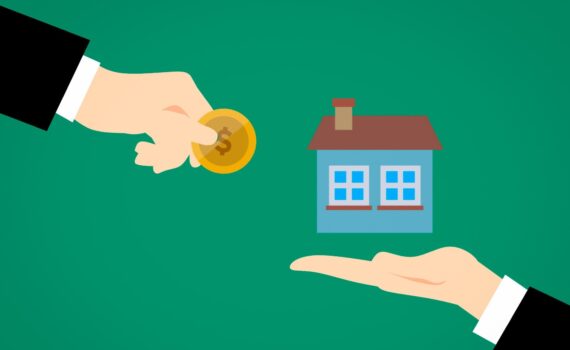I’m a strong believer in passive investments. In fact, not only do I have some, but I’m continually on the lookout for more. Passive investments are ideal since they allow you to make money while you are busy doing other things.
Yes, even when sleeping!
Some of the top passive income investments for 2021 are undoubtedly already on your radar. However, there is a slew of names you’ve probably never heard of.
In either case, having a list of passive income options available to assist you to choose the ones that will work best for you is beneficial.
Here are my picks for the top ten passive income investments for 2021:
1. Dividend Paying Stocks
Dividend-paying equities may not produce the same spectacular price rise as pure growth stocks, but they do provide consistent predictable returns. And, as a result of those consistent returns, they tend to enjoy greater price stability while producing a consistent cash flow.
However, unlike fixed-income assets such as certificates of deposit, dividend-paying stocks also provide capital gain in addition to dividends. This will provide you with the benefit of both a consistent cash flow and price appreciation. Furthermore, these equities often give better dividend yields than the present sub-1% rates on savings accounts, money markets, and CDs.
“The advantage of buying a company that continuously pays a dividend over a bond is that bond payments are set and do not increase over time,” says Robert R. Johnson, Professor of Finance at Creighton University’s Heider College of Business and CEO and Chair of Economic Index Associates. “Dividend-paying equities not only provide a cash flow, but that dividend payment often grows significantly over time. Furthermore, stock prices often rise over long periods of time.”
“Coca-Cola, Hormel, Genuine Parts, Procter & Gamble, and Johnson & Johnson are all instances of dividend kings that have boosted dividends for more than 50 straight years,” Johnson adds.
Dividend Aristocrats
The Dividend Aristocrats is one location to look for the best dividend-paying stocks. The list now consists of 65 stocks, each of which is a component of the S& P 500 and has provided at least 25 years of consistent dividend increases.
“When you purchase a Dividend Aristocrat, you own shares of a company whose management has demonstrated an understanding of its fiduciary responsibility to shareholders,” says Marc Lichtenfeld, Chief Income Strategist at The Oxford Club. “By emphasizing creating a track record of annual dividend increases for a quarter-century or more, there is less risk of undertaking rash and costly acquisitions or ill-timed stock buybacks. Furthermore, you may be confident that it is a company that understands how to boost its cash flow in order to maintain annual dividend increases.”
AT&T (7.2 percent yield), Cardinal Health Inc. (4.3 percent), and AbbVie Inc. are examples of high dividend stocks featured in the dividend aristocrats (5.0 percent ).
You can, however, invest in a dividend aristocrat ETF if you like. The ProShares S& P 500 Dividend Aristocrats ETF now pays a dividend yield of 2.57 percent and has returned an average of 12.52 percent per year over the last five years (through December 31, 2020), including 8.37 percent in 2020.
2. Real Estate
Of course, I’m referring to investment real estate, which generates rental income. You are already aware of the possibility for capital appreciation if you buy a home. Investment real estate capitalizes on that appreciation as well as other factors.
You will rent out your investment property to tenants. The rent should at the very least cover the monthly mortgage payment. However, as rent levels climb over time, the property will eventually provide a positive cash flow.
The property’s worth is increasing while this procedure is taking place. At that time, you’re benefiting from two sources: capital appreciation and a net profit on rent.
If you maintain the property until the mortgage is paid off, you’ll have the option of either keeping it and collecting an even higher percentage of the rent as profit or selling it for a significant, one-time windfall.
To be truthful to reality, however, renting real estate is only a semi-passive investment. You will need to be active in the purchase of the property, in preparing it for occupancy, and in finding new tenants whenever a prior one moves out. Throughout the process, you will be required to do maintenance and repairs, which will cost you money, time, or both.
3. Real Estate Investment Trusts (REITs)
If you want to invest in real estate but don’t want the hassle of maintaining one or more individual properties, you can do so through real estate investment trusts or REITs.
REITs are similar to mutual funds in that they invest in real estate. But not just any real estate – a typical REIT owns commercial real estate. Office buildings, shopping malls, huge housing complexes, medical institutions, and other sorts of non-residential property are examples of this.
REITs pay out dividends based on the trust’s net profits. However, when the trust’s properties are sold, you will benefit from capital appreciation.
Commercial property has historically been one of the most profitable ways to invest in real estate. REITs will allow you to invest in these properties in the same way that you would invest in inequities. Shares in these trusts can be purchased and sold through major brokerage firms.
“Real Estate Investment Trusts (REITs) are a unique business structure that invests in real estate and requires the organization to distribute more than 90% of its funds from operations to investors in order to qualify as a REIT,” says Greg Hahn, Chief Investment Officer at Winthrop Capital Management.
Hahn recommends National Retail Properties (NNN) and Medical Properties Trust (MPW), both of which have distribution yields of more than 5%.
“REITs are heavily leveraged since the underlying real estate in the trust is often backed with a senior commercial mortgage loan up to 75 percent on a loan-to-value basis,” warns Hahn. While REITs provide better income to investors, they are highly volatile and have a higher correlation with the stock market than bond investments.”
4. Peer-to-Peer (P2P) Loans
P2P lending is a method of increasing your return on investment by providing loans directly to consumers. Personal loans are made available to customers by P2P lenders for a variety of purposes, and monthly payments are collected and sent to the investors in those loans.
Typically, as an investor, you do not purchase the full debt. Instead, you’ll buy “notes,” which are chunks of loans. These notes are available for as little as $25. That implies you can divide a $5,000 investment across 200 separate notes.
Because you are operating as a direct lender to consumers, the interest rate returns on your investment are far larger than those available through more traditional investments.
Prosper, one of the largest P2P lending platforms, reports an average yearly return of 5.3 percent, which is significantly higher than the returns available from bank savings products and US Treasury securities. (Due to their recent acquisition of Radius Bank, the traditional leader in the P2P industry, Lending Club, is no longer accepting new investments.)
5. Create and Sell an Online Course
This is another passive income source I prefer because I’ve done it successfully before. And I’m not the only one. Thousands of people are generating passive income by creating and selling online courses.
Now, the online course plan will necessitate an initial investment, which will be your time and work in building the course. However, you can get assistance with this through internet programs such as Udemy and Kajabi.
You must carefully select your course topic. It must be one in which you have an excellent understanding of the subject. The topic possibilities are nearly limitless here. You can create online courses on how to start a new business, how to invest, how to build a tiny house, how to get out of debt, how to homeschool your children, and so on.
One of the easiest ways to identify online course topics is to look around and see how many are available in a specific field. If there are a lot of them, it’s a good sign that there’s a lot of interest in that topic.
After you’ve produced your course, you may sell it on blogs and websites that cover the same niche. You can sell your course through an affiliate program, in which you paysites a portion of the cost you receive for each course sold through that site.
If you market your course on numerous related websites, the money will come in without you having to do anything. By promoting for sale on different platforms, you can enhance your cash flow from the same commodity.
6. Intermediate Bond Funds
Intermediate bonds can be an excellent alternative if you wish to invest in interest income. They pay significantly higher interest rates than banks and US Treasury securities.
While they are not without danger, they are far more stable than long-term bonds. Intermediate bonds often have maturities of less than ten years, making them less sensitive to interest rate changes, which can reduce the market value of longer-term bonds as interest rates rise.
“REITs and dividend equities are stocks, which means they are risky,” warns Holmes Osborne, founder of Osbourne Global Investors. “In the meantime, Karaikudi real estate is at an all-time high — but it is also perilous. Intermediate bond funds are the most secure of the investments mentioned.”
Bond funds are perhaps the greatest method to invest in bonds in a way that provides enough diversity.
The Schwab U.S. Aggregate Bond ETF is one example. It currently yields 2.4 percent and has a five-year average annual return of 4.31 percent through the end of 2020. The bonds in the fund have an average duration of eight years, and more than 85 percent are rated AAA. This will provide you with high-interest rates while also providing you with a respectable level of security.
7. Robo-advisors
Robo-advisers may represent the pinnacle of passive investment. A robo-advisor will build a diversified portfolio and then manage it for a very cheap advice fee. This will include periodic rebalancing to maintain target asset allocations and dividend reinvestment. As an investor, your sole responsibility will be to fill your account and then sit back and relax.
A robo-advisor, also known as a robo, a roboadvisor, or a robo-adviser, is a form of brokerage account that automates the investment process, according to Contributor Miranda Marquit. “Most robo advisors charge lower fees than traditional financial advisors because they invest your money in pre-baked portfolios comprised mostly of specially selected, low-fee exchange-traded funds” (ETFs). For advanced investors or those with greater account balances, some robo-advisors also provide access to other more tailored investment options.”
Betterment and Wealthfront are two of the most popular robo-advisors. Each will offer full portfolio management for a nominal fee of 0.25 percent of your account balance. Because of their passive nature, these robo-advisors are ideal for either a retirement account or a taxable investing account.
8. Real Estate Crowdfunding
Real estate crowdfunding is a more specialized method of investing in real estate. This is due to the fact that they allow you to invest in highly specialized real estate projects.
Fundrise is one such example. The platform provides two unique investments. The first is an eREIT, which is a non-publicly traded REIT that is solely available through Fundrise. An eREIT can be purchased for as low as $500. Over the last several years, the Fundrise eREIT has generated returns ranging from 8% to 12% every year.
The Fundrise eREIT, like publicly-traded REITs, invests in commercial real estate such as office buildings and residential complexes.
However, the site also allows you to invest in specific real estate transactions. This is accomplished through a Fundrise eFund, which requires a $1,000 minimum investment.
Within the fund, either raw land is purchased and developed for sale, or existing properties are purchased, rehabbed, and resold for a profit.
It’s an opportunity to engage in the types of real estate transactions that yield high profits but that you don’t want to take on on your own.
9. Buy Royalties
This is most likely the most unusual passive investment on this list, if only because few people are aware of its existence. However, it is a legitimate source of passive income with a distinct twist.
Rather than investing in equities or real estate, you will invest in license agreements. As a result, you will share in the profits from a wide range of initiatives, including music, videos, syndicated TV shows, mineral rights, products, oil and gas, and even venture-capital financing arrangements.
All become accessible as a result of the product creator’s or the original investor’s decision to sell royalties in order to generate immediate cash. You will generate royalty revenue on your investment if you invest in certain products or businesses. It is even feasible to resell a royalty that you have purchased in the future.
The Royalty Exchange allows you to invest in royalties. The exchange has been involved in a wide range of royalty investments, including those made by well-known musicians. The company claims to have completed over 1,000 transactions totaling more than $84 million. The average annual return on investment is better than 10%.
Before making this type of investment, keep in mind that each deal is unique. With each royalty you participate in, the underlying product, the required minimum investment Karaikudi, the estimated yearly return, and the terms of the agreement will differ.
10. Payoff Debt
Debt repayment can be viewed as a reversal of an investment. It is not an investment in the traditional sense, but it yields a comparable return. Closer inspection reveals that the return is significantly higher than the return on most income-generating investments.
For example, suppose you have a $10,000 credit card with a 20% annual interest rate. By paying it off, you eliminate the 20 percent interest you’re paying on the line.
That equates to a 20% return on a $10,000 investment in something more conventional.
But what makes paying off debt even better is that you’ll get that high rate of return with almost no risk. Not only is there no possibility of principal loss, but the “yield” is assured at 20%.
If you’re looking for passive, income-generating assets, you should first pay off any high-interest debt. If you don’t, you’ll be passing on a very hefty guaranteed return.
Bottom Line
It is acceptable to have certain active investments that you manage on a daily basis. This may entail picking your own stocks, investing in local businesses, or engaging in the fix-and-flip real estate game.
However, if you have any amount of investing cash, the majority of it should be placed in ventures that will allow you to accomplish anything you want with your life. They generate income in the background, allowing your wealth to grow while you are doing other things – including sleeping!









